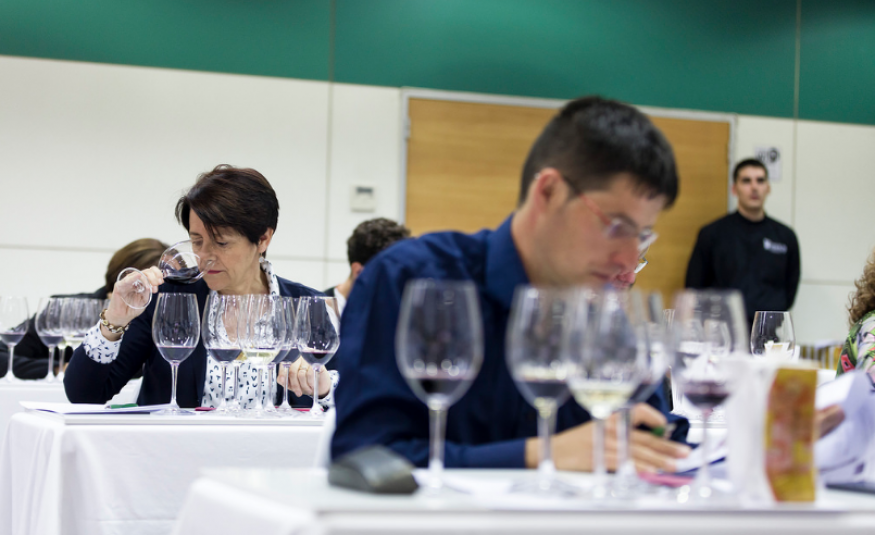The next edition of the meat and derivatives show, organised by Alimentaria Exhibitions, a Fira de Barcelona company, is reaffirming its position as the biggest and most important industry event in Spain.
The leading event for the Spanish meat industry, with a track record going back four decades, will be held at Fira de Barcelona's Gran Via exhibition centre from 16-19 April 2018.
With ten months still to go before the event, a large number of the most important companies and associations in the Spanish meat industry have reaffirmed their considerable confidence in Intercarn.
More than 85 per cent of the net exhibition space has already been booked. It is expected that the show will occupy some 15,000sqm (10 per cent more than the previous edition) and host more than 550 exhibitors.
Intercarn will be exhibiting raw, processed, cured, pre-cooked, dried and Iberian meat products as well as ready meals.
Some of the leading firms in the sector that have already confirmed their participation in Intercarn include Campofrio Food Group, Noel Alimentaria, Grupo Vall Companys, Casademont, Jamones Aljomar, El Pozo Alimentación, Grupo Jorge, Splendid Foods, Los Norteños, Grupo Sada and La Selva, while confirmed associations include Interporc, Interovic, Anafric, Frivin and Fecic.
The considerable number of European companies, especially from Romania, which will have their own pavilion of meat products – as well as Belgium, Germany and France.
Cross-cutting synergies
Intercarn is the only trade fair in Europe to not only feature the biggest sector offering on the market but also a host of business opportunities arising from synergies with the other trade fairs at Alimentaria. Alimentaria is one of the world's most important trade shows for food, drinks and foodservice and welcomes more than 140,000 visitors, mainly buyers and professionals from the distribution, retail and HoReCa sectors, over 40,000 of whom come from abroad.
According to Paulo Soares, the president of Intercarn and regional managing director of Southern Europe for the Campofrio Food Group, the event ‘offers the opportunity to get to know everything that the sector is doing in terms of innovation, quality, processes and systems.'
Soares also emphasised the fact that ‘the Spanish meat industry is the country's fourth biggest industrial sector' and added that ‘Intercarn has supported the sector in its growth and has helped to strengthen its export capacity and improve its image.'
International expansion
The fact that the Wholesale World Congress is being held for the first time at Alimentaria further enlarges this horizon by guaranteeing the presence of all the mayor wholesalers, managers and directors from more than 40 countries at the show.
As explained by Josep Tejedo, the general manager of Mercabarna, ‘for business owners in the sector, Intercarn offers the chance to discover the new trends and commercial and consumer innovations that are taking hold in other countries in relation to food, as well as being able to establish trade relations and synergies with some 400 professionals from wholesale markets worldwide taking part in the event.'
The boost for local and regional firms is another major asset of the show: as confirmed by Maite Arrizabalaga, a member of the Intercarn committee and manager of the agri-food chain AECOC: ‘The Spanish meat industry is very fragmented, and for this reason the organisation of events such as Intercan, which facilitate meetings and offer the opportunity to increase visibility with buyers, is extremely useful, especially for companies that do not have their own resources to achieve this kind of market positioning.'
Rising consumer trends
Showcasing innovations is one of the show's main strengths, according to Anna Bosch: "Although traditional products are still leading sales, consumers are becoming more open to other more innovative or ground-breaking alternatives, such as individual and practical formats, better systems for conserving products and, above all, charcuterie tapas, which export the culinary traditions of Spain."
Other burgeoning trends, according to Josep Tejedo, include ‘new meat products with less salt and less fat, meat and charcuterie with natural preservatives; antibiotic-free meat and organic meat.'
Economic driving force
The meat industry is the fourth largest industrial sector in Spain with a turnover of over 22bn euros, more than 21 per cent of the entire Spanish food industry.






